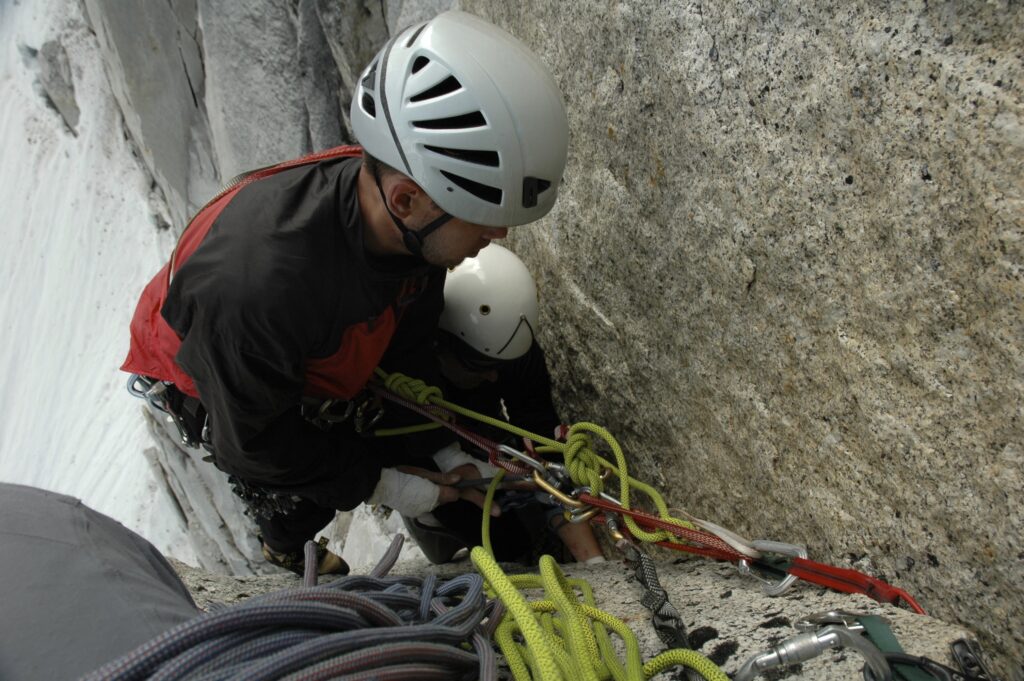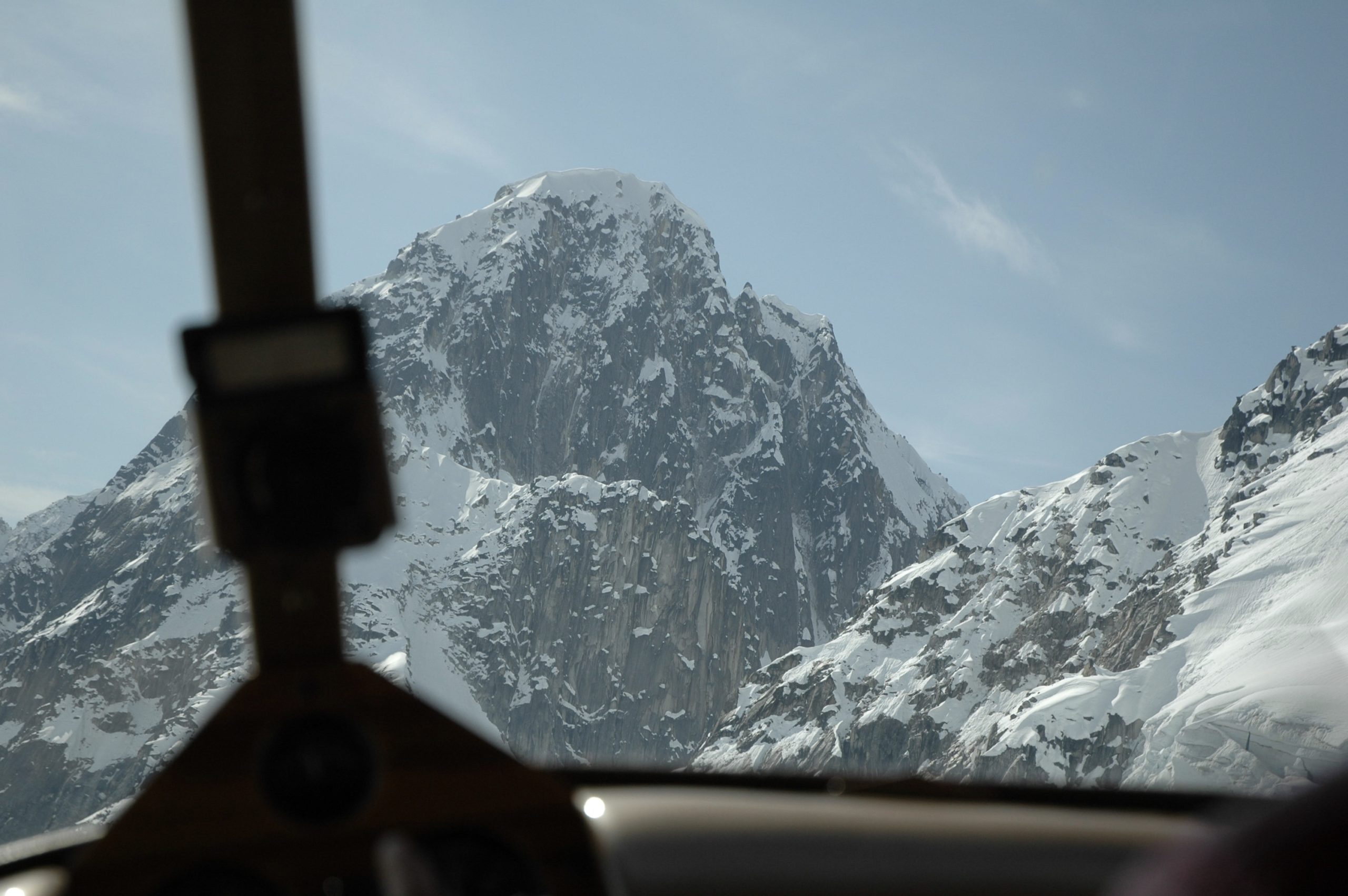SHARE
I remember with absolute clarity the first time I went on expedition in Alaska.
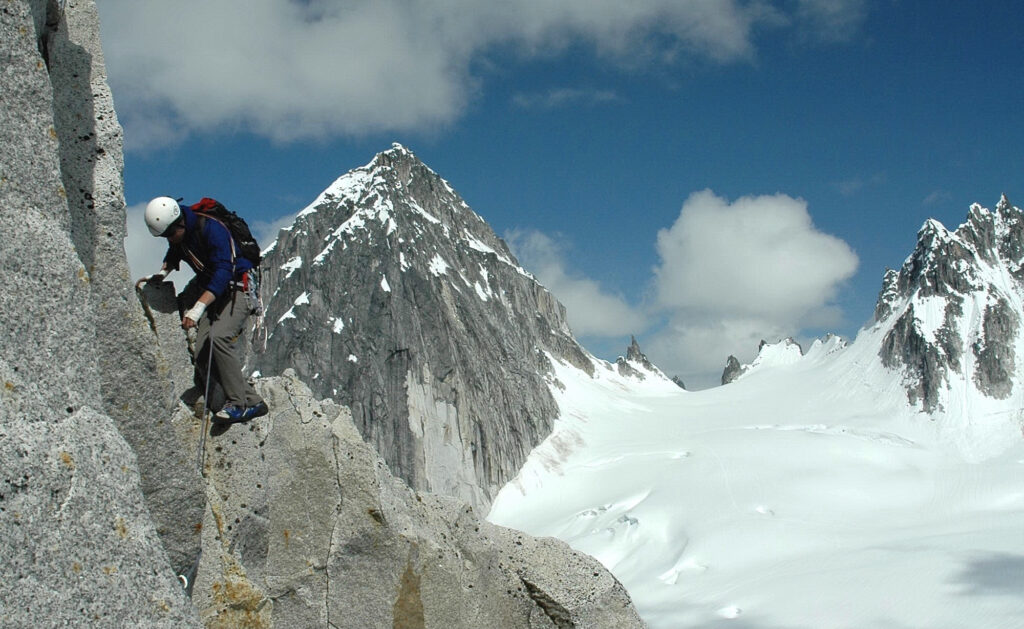
Arriving in late April, my partner and I drove from Anchorage to the hamlet of Talkeetna, packed our three weeks of food and gear into a small plane with skis for landing gear, took off into Denali National Park and landed on a glacier in the Ruth Gorge. A storm was rolling in as we landed so we quickly unpacked the plane, closed the doors, told the pilot we would see him sometime three weeks later (it’s all weather dependent out there, so exact dates for flying are meaningless), and the plane disappeared into the storm as it headed back to safe harbor.
After the plane departed, it was dead silent. Zero. Just the sound of snow falling on our massive pile of food and gear. We were standing alone, not another team of climbers or skiers in the entire valley. And this valley, the Ruth Gorge, is like Yosemite on steroids. Massive.

My heart sunk. I was terrified. This place was fucking huge. These walls were unimaginably large. And while I had climbed El Capitan just two weeks prior. That felt like primary school compared to this arena.
Fast forward over the next three weeks… We were barely successful on any of the objectives we set out to climb. We couldn’t commit in this environment. It was too much for us to wrap our brains around – it was all too much.
I can pinpoint the two factors that influenced every decision we faced: fear and self-doubt.
Fear and self-doubt were a poison. And we took a dose of it every time we had a discussion.
Fear and self-doubt are such powerful emotions and states of being that, with enough repetition, we become habituated and create our realities around them – we did these multiple times a day on this Alaskan expedition, it became a self-fulfilling prophecy.
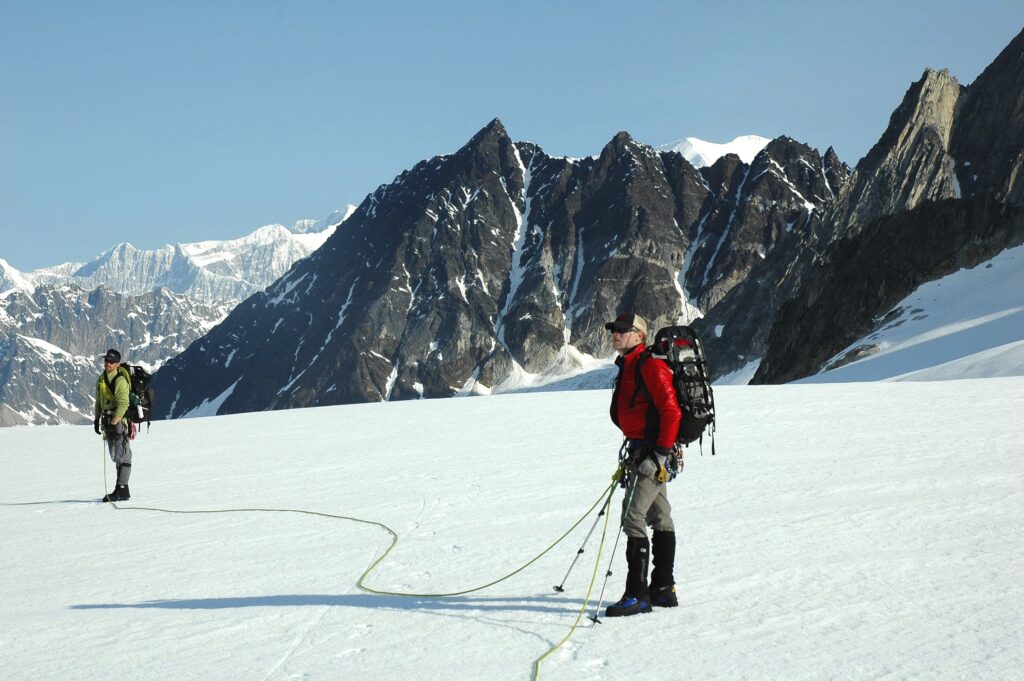
This mindset does more than just hold us back from stepping fully into ourselves, it mutes our experience of the world and blocks our ability to fully engage. As men, we are fed a singular archetype of behavior and presentation of the masculine that is rarely congruent with who we are – how a ‘man’ should show up and be; just the right amount of stereotypical macho, rugged, composed, and fuck-it all individualism. And, we have internalized it without awareness of other ways of being. We have options though. The good news is that they can be overcome with the right mindset and strategies.
Here are ways to work with fear and self-doubt:
- Identify the source of fear and self-doubt: Understanding the root cause of your fear and self-doubt is the first step to overcoming it. Is it a past experience, a limiting belief, or something else? Once you have identified the source, you can work on addressing it. For example, if you have a fear of heights, it may stem from a single terrifying experience where you reacted appropriately to exposure to heights and the risk on injury therein; but, and here is the big but, not all exposures to height are the same and our brain does an excellent job at conflating perceived risk and actual risk. We err heavily on the side that all risk is actual risk in order to protect ourselves – but all risk isn’t the same and it takes significant care and work to unwind that automatic response.
- Practice self-awareness and self-reflection: Regular self-reflection, meditation, journaling, recording and charting our experiences, can significantly help us better understand our thoughts and emotions and identify patterns of negative thinking that contribute to fear and self-doubt. Taking some time each day, even if it is five minutes before your work begins and five minutes at the end of the day to reflect on your experiences, thoughts, and feelings. Write them down, record them in whatever way works for you. Give yourself the opportunity to gain insight into what triggers your fears and self-doubt and what opportunities you may have had to mitigate them or shift the patterned behavior and response.
- Set stretch goals: When you set stretch goals, goals that are just out of your normal routine or reach but which you have a skill set and ability to engage with, that is where growth, learning and success lay. Stretch goals build our confidence and increase our capacity to work with uncertainty since our skill set and abilities are challenged but not overwhelmed, it is in this space that we can truly work with fear and self-doubt and begin to shift the narrative.
- Choose wisely who you surround yourself with: Jim Rohn posits that we are the average of the five people we spend the most time with. And, while this is true, it also isn’t the whole story. It is actually much more intense that – the influence of those five people is compounding. Think of the exponential effect of those five original people, then the five unclenching each of them, then the next five, and on and on. It’s intense to imagine all of these influencing factors. Choose wisely indeed. Those first five? There is a lot of weight of influence they’re compounding. Your network and community really does make all the difference..
- Challenge yourself: Taking on new challenges and pushing yourself out of your comfort zone, just enough, encourages growth and builds confidence. The ability to find the sweet spot between comfort and overwhelm – where learning and practice occurs. That’s our aim. And the only way we can identify that space if through curiosity and engagement. It’s a learned skill and it isn’t binary. Some days your body, mind, and nervous system are synced and engaging in challenge is smooth and rewarding. Other days? Well, those are the days you are psyched you got out of bed and attending to the basic needs…life is certainly a continuum of experiences. Grace is key.
- Focus on the present moment: Fear and self-doubt often stem from worry about the future or regrets about the past: the two drives of depression and anxiety. Repeat enough regret; that’s depression. Repeat enough worry and future-tripping; that’s anxiety. By focusing on the present moment, you can quiet your mind and reduce anxiety. Easier said than done and there are umpteen meditation apps and tools out there to help support you. My recommendation? Find the access point that works for you. For me, physical movement is key to unlocking this state, a sitting meditation practice on it’s own: no luck there for me…
- Celebrate your successes: Celebrating your successes, no matter how small, can help boost your confidence and give you a sense of accomplishment. Find ways to share with others, mark your own progress, note the successes as they build. It’s a subtle art seeing and experiencing the gains.
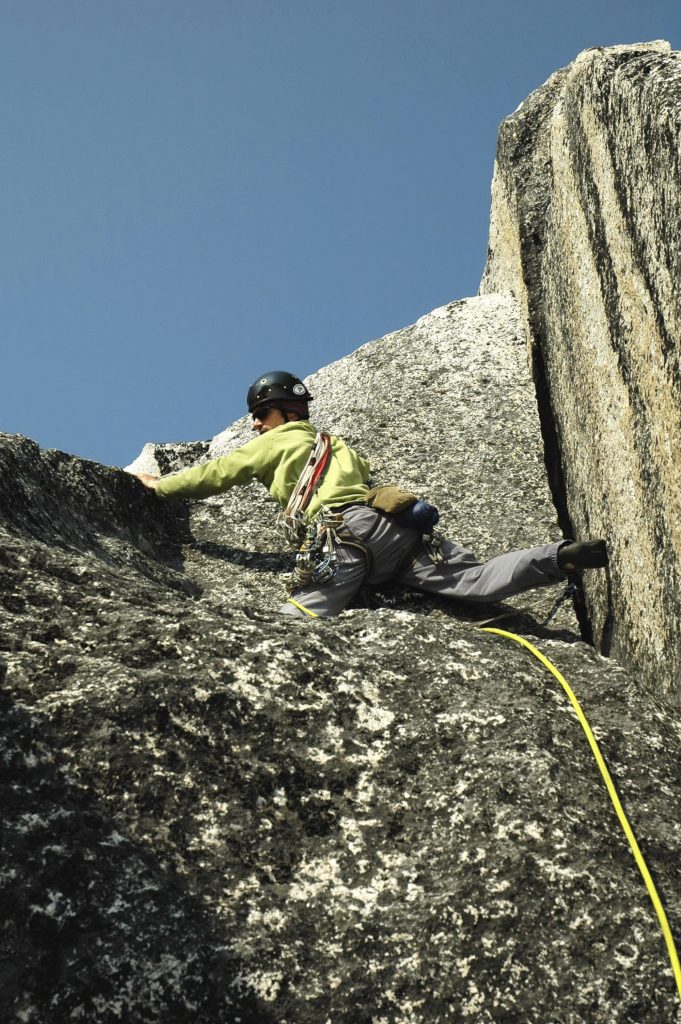
Fear and self-doubt are essential experiences – they inform us of risk that could lead to our demise. But the reality, is that while our nervous system is highly tuned to manage and mitigate risk, it is a poor arbitrator of actual risk versus perceived risk. And so everything feels like an actual risk (hint: if you experience what is popularly described as a triggered response, that is typically perceived risk).
Our exposure to actual risk on a daily basis is low in the developed world, but our amygdala (the autonomic nervous system response center in our brain) isn’t able to differentiate actual vs perceived. It’s all real to the amygdala.
Sometimes just noticing this alone helps shift our relationship to fear and self-doubt.
Fast-forward one year from the Ruth Gorge expedition and I am again flying back into the same basecamp we had set-up the previous year. This time armed with a shift in mindset, fear and self-doubt had been replaced with more experience, previous exposure to this unique mountain environment, and an awareness of how the mental state of our team influenced our decision making and planning. Together we managed to repeat a couple of the classic ascents in the area and successfully make two significant first ascents.
We didn’t overcome fear or self-doubt, we worked with it, it became our partner in the ascent.
Note: In this interview on NPR’s Hidden Brain, Todd Kashdan discusses this experience in personal detail in the last 15 minutes or so of his interview, he name drops me as the teacher and guide through this experience first hand.
